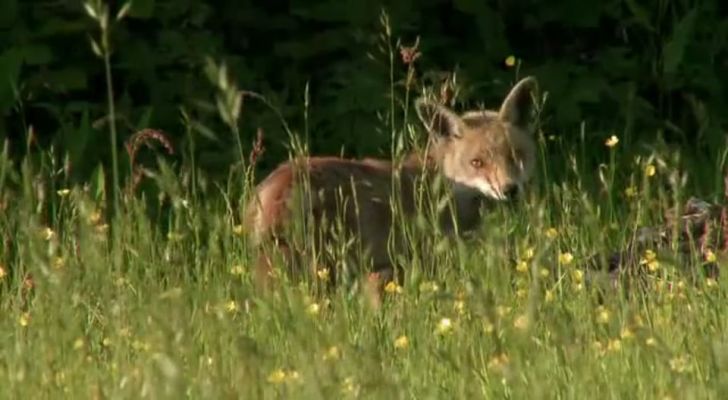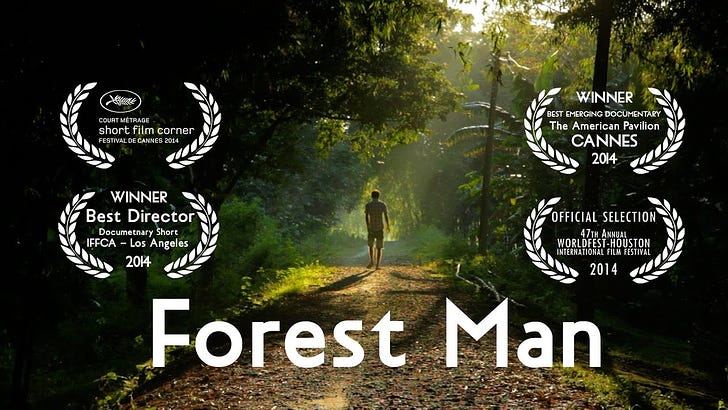Hope is a good thing indeed, said
who managed to capture the intention of The Fiertzeside:One thing you do so admirably here is show the hope which exists in the world. Too often, we are preprogrammed by the media (whether social or mainstream) to only look at the negatives but, when I read something like this, I am reminded that there is a lot of good in the world, too.
Hope was the key theme in reader responses to the food security and food sovereignty series. This was expressed best in
’ comment about the impact on her daughter: “Thank you for this inspiring article. It is hard for the younger generation to have hope when there is evidence of so much climate change. But my 18 year old daughter finds hope in your articles, and also a lesson in carrying on despite opposition”.The younger generation are a source of hope in themselves.
observed how many millenials are growing their own food and keeping chickens. The act of sharing the ‘how to’ (e.g. on TikTok) inspires others: “Even myself, having been gifted a few tomato and bell pepper plants can instantly see the difference between them and what is sold to me in supermarkets. The aroma, the flavour! I gifted one of my friends a year long seed box with different varieties of vegetables that can be planted throughout the months and it has caused her to landscape half her garden with raised beds and has plans to do the other half soon.” Kim would love to see a world in which that was the norm.Perhaps I shouldn’t moan about TikTok after all?
The food series also encouraged both practical and philosophical questions.
Practical
In response to the founding of Incredible Edible,
suggested, “After the initial great idea and the challenge of setting it up, you need a leader to keep it going.”This had me thinking deeply enough to see consider leadership for a series of its own. After the initial impetus of starting a revolution, what does it take for it to endure long after the founders have moved on? For the time being, I would argue that where national leaders often fail in responding to any crisis except those which might affect their rich friends or how they might do in the polls, micro-leadership at grass-roots level can be highly effective.
The second practical issue was the question of who is going to do the work. Both Kate and
raised this in response to a home-based market garden, bringing to light issues of both age and gender.“Speaking of sustainable plans for aging, this was my question about the video: at what point are those grown kids moving on to new homes? And then who will help? Along with the picture of family homesteading in the video, the sort of extended-community work that you’ve been researching seems important to include all the life stages.”
Part of the work of grassroots activism, whether intentional or not, is community building. This was evident in several of the food security stories. Planting, nurturing, harvesting food and saving seeds may start with an individual, but depends on community commitment and support to continue. Community is used as a throwaway concept and its meaning is somewhat diminished. I’ve included a community area for readers, but what does that really mean? Another series for the future.
Tara’s point was extended by
who said, “Tara's point in comment about the next generation is a good one. Who will grow our food if we rely on a dying inclination to farm?”While young people from traditional farms have left the family business for a wider choice of options, there is a new generational cohort of individuals seeking a point of entry into farming but meet with prohibitive barriers. Community gardens, farms etc. are one means, an example being Bedford Fields Community Forest Garden, which was initiated by a nearby cooperative housing group; and also cooperative land purchase which is then leased as small-holdings to prospective regenerative farmers. This point was also reinforced by Kim (see quote above) who is impressed by the number of millennials doing backyard farming.
Kate was concerned about the impact of small-scale farming, which though offers healthy (and tasty) food, doesn’t address the fact that convenience food changed women’s lives:
was sceptical about permaculture design as a solution for feeding the world’s population and on home-based market gardening suggested: “While it may be sufficient to become self-sufficient to feed, say, one small family, it doesn't appear to be sufficiently productive to develop as a means to produce for a larger population.”I think the issue of the convenience of processed food needs to be addressed. It is always presented as such a black and white issue. Processed food is bad and home cooked food is best. But home cooked food takes time. Processed food is quick and often cheaper. Women’s emancipation has been hindered by their need to cook for hours, and look after their families.
While travelling, I visited a lot of the projects similar to those I’ve described in this series. Most were in England and Wales. One of the transitions I witnessed was from traditional farming to regenerative farming. These sites were larger scale and often included animal husbandry as part of an integrated system of ethical food production.
On this topic, if you have a bit of time spare, I highly recommend this 50 minute documentary, A Farm for the Future.
Philosophical Points
I loved the following observation, from Renée, as it summed up beautifully a central idea in the series. “How we relate with the fact of food says 'all' about how we relate with life and one another.”
On why deer don’t pay to eat leaves, I delighted in reading the thoughtful contemplation (and action) it inspired.
“I believe generosity is born in gratitude.”
“In receiving their offering, I am a provider of (what I hope to be) meaning-making in their lives. We become a circle of generosity and meaning-making in the lives of one another. We feed and are fed. The circle is endless and ever opening. There is no lack.”
“It [post subtitle] invites us to think about our gifts as contributions to the health of the whole organism of which we are a part. This really helps to break down the giver/receiver binary that you hinted about in the Chat. (And once the binary is broken, I wonder what it looks like to give gifts to oneself, as well as others? This seems especially important for any givers who are trying to disengage themselves from host/parasite relations. Then it's ok to cut off gifts to the other and redirect that energy as gifts to self, hopefully toward a healthier ecosystem.)”
In discussing what makes a story powerful enough to incite change, researchers suggested that more is needed than the story itself. I wondered if I was being too ambitious in expecting anyone to act on anything I had shared. It seems I should have more faith in my readers! As an addition to that post, our own, albeit limited, evidence would suggest that if the story is poignant in some way to the reader, then action may then well follow.
Many of the comments have also been the kind of chat we might have if we’d just met at the café or bar. The kind that enable us to get to past the anonymity and recognise each other in this vast platform. These, for me, are especially valuable. I would like to thank you all for your contribution to making this a wonderful space. I couldn’t have hoped for a more positive welcome on this safar (journey). Several of you have supported the letter through passing on the good news and pointing eyes this way, for which I am grateful. Through you I have learned a great deal, so much more than I could have expected.
I had a lot to take away, inspiring future posts. One, perhaps more frivolous observation, was to give the headline serious consideration: including the word political was an invitation to not read the post, and try not to mislead your readers:
Not going to lie, I read this as 'The Man that Stopped the Dessert' and I was genuinely ready to argue that dessert should never be excluded from one’s life.
🤣
P.S. In the embers of the fierlight, several contributors shared stories of hope, the links to which you will find by clicking on the image below:







Thanks for including me in the conversation, I'm so honored! 🙂❤️
Safar ... lovely and hope filled community building post. Another story your readers might enjoy is the story of "The Biggest Little Farm" here in southern California ... here's the trailer for the award-winning movie. https://www.youtube.com/watch?v=fcQKWkpPB3U